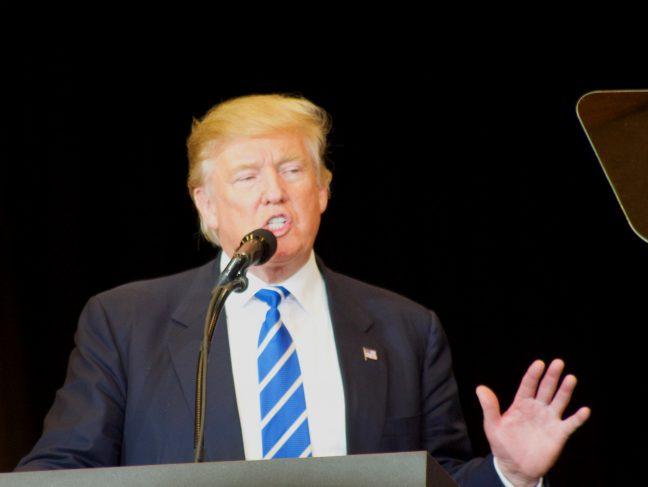Free trade is one of those issues where debate is a done deal. Economists overwhelmingly agree that it is beneficial for a country. In their surveys of experts, the University of Chicago’s Booth School of Business found that 100 percent of economists agree that trade with China has made Americans better off and 98 percent believe we also benefit from North American Free Trade Agreement.
The philosophy behind free trade emerged in the West with Adam Smith, the founder of modern economics. Rejecting the mercantilist strategies adopted by many of the European empires at the time, Smith argued for unregulated trade and that each nation should specialize in what it best produces. This strategy was developed through the following centuries and lowered the overall costs of many consumer goods.
We are affected by free trade every day. Our cars, cell phones, pencils and notebooks are significantly cheaper thanks to the exchange of goods at a global level. According to a study by economists Raphael Auer and Andreas Fischer, when another country captures a 1 percent share of the manufacturing sector from America, the sector’s producer prices decrease by 2.35 percent. In fact, free trade hasn’t just led world prosperity, but also world peace. Research by economists like Patrick McDonald have shown the countries more likely to encourage trade are less likely to deal with conflict.
If a country decides to take a protectionist approach on trade, then there is less of an incentive to avoid war because the business relationships between capitalists in two different nations won’t exist. It also means that the people in a country with protectionist trade policies won’t be as exposed to other cultures when compared to those that live in a country with free trade. You are less likely to be hostile to cultures you interact with.
The argument made by nationalist and populist politicians that a country needs protectionist trade policies to shield domestic industry is gaining more influence. President Donald Trump has dispatched his top trade official, Robert Lighthizer, to renegotiate NAFTA. Changes to the North American Free Trade Agreement would include an expiration date of five years unless all three parties agree to renew it and multiple adjustments that extend from the internet to automakers. The president once said at a debate that NAFTA is the worst trade deal ever signed.
The rise of populism, nationalism isn’t a Trump phenomenon, experts say
No, a Trump presidency doesn’t look like a return to the Herbert Hoover years when sky-high tariffs plunged the United States into the depths of the Great Depression. Nevertheless, if these changes are made then they could ferociously disrupt American and international markets.
It is imperative that NAFTA and other free trade agreements are defended. Critics of neoliberal trade policies usually have two points. The first is that the opening of trade with other countries has allowed multinational corporations to move manufacturing to places where the cost of labor is low, thus eliminating jobs in the United States. The second is that the trade deficit the United States has with many trading partners is a bad thing because it means we are not making more money than we are losing.
Trade policies lead to different kinds of job growth. What many protectionists actually fear is the departure of inefficient industries in the United States to countries where they are better suited. Protectionism is meant to protect older jobs that will not be sustained in America with globalization. With free trade, resources that were being drained into these unnecessary industries can now be used more productively, supporting innovations, creating new jobs and expanding more efficient sectors of the economy in the process.
While there are less factory jobs today, this is mostly due to productivity increases. According to economists Michael Hicks and Srikant Devaraj of Ball State University, 87.8 percent of jobs losses in manufacturing were due to rising productivity growth from technological progress and just 13.4 percent were lost from trade.
Debt is bad, but a trade deficit is not debt in the way many people think it is. The trade deficit widens whenever foreign investors want to put more capital into the United States. More investment means current businesses are growing and new businesses are forming. It’s a sign that our economic future is brighter.
For Wisconsin and 32 other states, Canada ranks number one in exports. Six states have Mexico as their biggest recipient of exports. These facts show how important NAFTA is for the American economy.
Then there’s the national security aspect. Mexico’s foreign minister, Luis Videgaray, has said that changes to NAFTA could also end cooperation between his country and the United States in matters of international security. This is a risk to American safety that should not be taken.
A renegotiation of NAFTA will strain relations with Canada and Mexico, and it is likely the talks will lead to a bad outcome. The cost of changing a successful free trade agreement is adverse for everyone. If there is a lesson the Trump administration needs to learn, then it is this: Don’t fix what isn’t broken.
John Graber ([email protected]) is a senior majoring in history and political science.





















